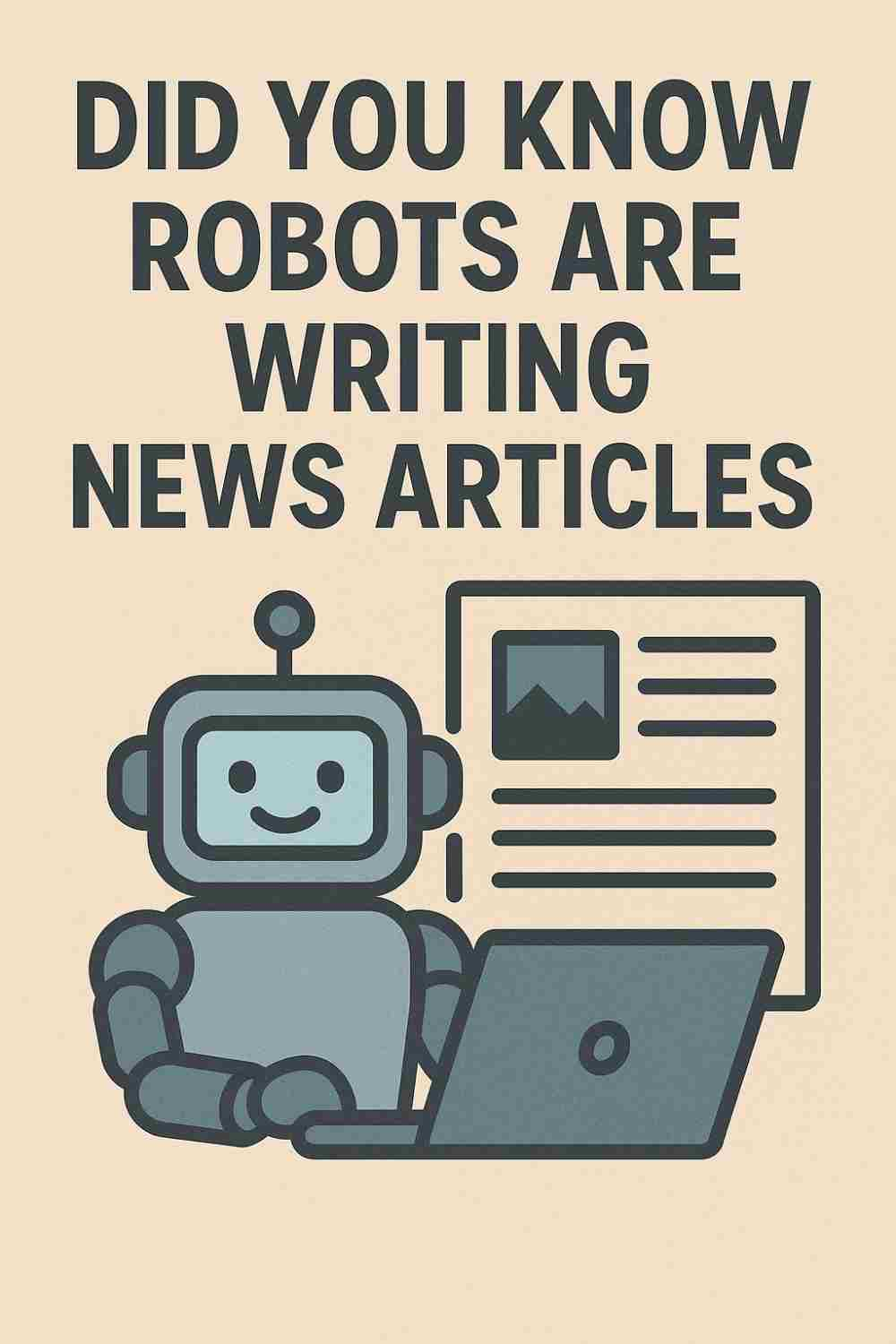 Imagine waking up, grabbing your morning coffee, and scrolling through the news—only to realize the article you’re reading wasn’t written by a human at all. No caffeine-fueled journalist, no editor hunched over a keyboard, just lines of code churning out words at lightning speed. Sounds like sci-fi? It’s already happening. Newsrooms worldwide are quietly handing over the keyboard to robots, and the results are… well, let’s just say they’re not always Pulitzer-worthy.
Imagine waking up, grabbing your morning coffee, and scrolling through the news—only to realize the article you’re reading wasn’t written by a human at all. No caffeine-fueled journalist, no editor hunched over a keyboard, just lines of code churning out words at lightning speed. Sounds like sci-fi? It’s already happening. Newsrooms worldwide are quietly handing over the keyboard to robots, and the results are… well, let’s just say they’re not always Pulitzer-worthy.
The Rise of the Robot Reporter 🤖
You’d think writing news requires nuance, empathy, and a knack for storytelling—qualities machines famously lack. But here’s the twist: robots excel at crunching data, and news isn’t always about flair. Earnings reports? Sports recaps? Weather updates? These are formulaic, repetitive tasks perfect for automation. The Associated Press, Reuters, and even The Washington Post have used AI to generate thousands of articles.
Take Bloomberg’s Cyborg system. It spits out financial stories faster than a trader can yell “Sell!” And it’s not just big players. Local papers, strapped for cash and staff, are turning to AI to fill gaps. The upside? Speed and cost-efficiency. The downside? Ever read a robot’s attempt at humor? Exactly.
When Robots Get It Wrong (Spectacularly)
Machines don’t understand sarcasm. Or irony. Or the fact that “heated exchange” doesn’t mean two people literally raised their body temperatures. In 2017, The Los Angeles Times’ Quakebot auto-published a story about an earthquake… based on outdated data. The quake had happened years earlier. Whoops.
Then there’s the infamous “T-bot” from The Guardian, which tried to analyze political bias in headlines. It flagged phrases like “economic growth” as “right-leaning” and “climate crisis” as “leftist.” Turns out, robots might be the most opinionated writers in the room—just not in a way that makes sense.
The Human Touch: What Robots Can’t Replicate
Sure, AI can mimic syntax, but can it capture the grit of a war zone or the quiet despair in a unemployment line? Not yet. Investigative journalism, deep interviews, and op-eds dripping with personality still belong to humans. A robot won’t notice the tremor in a source’s voice or the unspoken tension in a courtroom.
And let’s talk about accountability. When an AI messes up, who takes the blame? The programmer? The editor who greenlit it? The algorithm itself? (Spoiler: Algorithms don’t apologize.)
The Future: Collaboration or Takeover?
Here’s the real question: Are robots replacing journalists, or just freeing them up for better work? Imagine a world where AI handles the grunt work—stock market updates, traffic reports—while humans dive into investigative pieces and long-form narratives. That’s the dream. The nightmare? Newsrooms firing staff en masse because a bot “does it cheaper.”
Some outlets are striking a balance. The Washington Post’s Heliograf covers high school sports and election results but leaves analysis to humans. Meanwhile, Forbes uses AI to suggest headlines, not write full pieces. It’s a tool, not a replacement—at least for now.
Your Turn: Can You Spot the Bot?
Next time you skim the news, play a game: Is this by a human or a machine? Look for dead giveaways:
🔹 Repetitive phrasing (“The company reported earnings. Earnings were reported by the company.”)
🔹 Zero wit or wordplay (Robots love literalness like cats love cardboard boxes.)
🔹 Hyper-speed publishing (Breaking news at 3:00 a.m.? Probably not a sleep-deprived intern.)
Still unsure? Take this Homepage quiz to test your bot-spotting skills. Or, if you’re in the mood for something lighter, try the Entertainment quiz—guaranteed human-made (we think).
Final Thought: Keep the Byline Human
Robots might draft the news, but they’ll never feel it. The best stories—the ones that stick with you—come from lived experience, messy emotions, and yes, the occasional typo. So here’s hoping newsrooms remember: Efficiency is great, but soul? That’s irreplaceable.
Now, if you’ll excuse me, I have to go write something before the robots steal my job.

